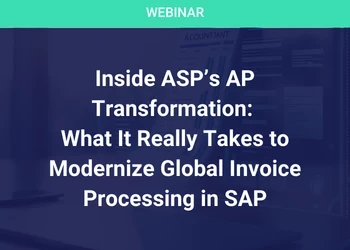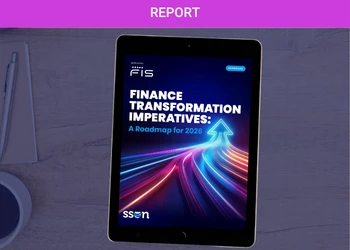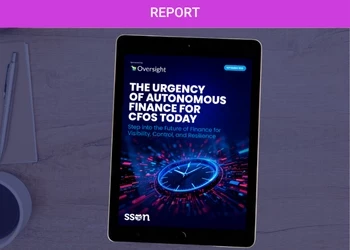How Shared Services Are Supporting Enterprise Working Capital
Add bookmark
The Covid-19 pandemic proved once again that cash is king in businesses of all types. The need for liquidity and forward visibility to cash flow has been vital to enterprises navigating through unprecedented and uncertain times.
Ever since I started learning how Shared Services and GBS operations could support companies, I considered managing the entire cash conversion cycle (CCC) of the enterprise as the holy grail of value contribution. Now is the time to step up to realize this quest.
Shared Services/GBS operations can drive more impact and improve working capital by elevating their mission, extending their scope, and accelerating liquidity across the entire cash conversion cycle.
Customer-to-cash is responsible for Days Sales Outstanding (DSO), purchase-to-pay is responsible for Days Payable Outstanding (DPO), and supply chain operations have responsibility for Days Inventory Outstanding (DIO). But who owns the overall CCC (DIO + DSO – DPO)?
In most organizations, the answer is nobody and everybody.
Treasury puts together cash flow forecasts, but they have limited ability to affect the outcomes themselves. They simply put the numbers together. Shared Services/GBS can start by adding the CCC to their set of KPIs. They can also ask the question, what does the CCC target need to be for the enterprise? The answer will dictate what DIO, DSO and DPO need to be – not what they have historically been in terms of X% improvement, best-in-class, etc.
DSO, DPO and DIO metrics have the most meaning and impact when managed in the context of overall cash conversion cycle – so it makes sense for Shared Services/GBS to volunteer to elevate their mission by taking on responsibility for managing the CCC. Accepting accountability without any control is a fool’s bargain, however. To be successful in managing the cash conversion cycle, Shared Services/GBS must extend their scope to include some aspects of supply chain work as well as extend their focus across customer-to-cash. The nature of some supply chain activities makes integration into Shared Services/GBS fairly easy. Operations that have mature order-to-cash (OTC) and indirect source-to-pay (STP) processes are well positioned to impact DIO outcomes by incorporating supply chain knowledge work like demand planning and inventory management.
“Managing the entire cash conversion cycle (CCC) of the enterprise [is] the holy grail of value contribution."
Similarly, Shared Services/GBS must extend their responsibility over the entirety of customer-to-cash. Many Shared Services/GBS operations grew out of functions in finance departments (AR, collections, etc.), so they have yet to achieve true end-to-end process management. Even though some may call themselves OTC or even CTC, the fact is that often their true process scope is more aptly described as invoice-to-cash.
To step up to the challenge of accountability for the cash conversion cycle, Shared Services/GBS should look to incorporate all the pieces of CTC, namely order management, forecasting/inventory management, customer data and credit management into their scope. That would enable optimizing the end-to-end process rather than trying to fix everything piecemeal, on the back end.
Shared Services/GBS can accelerate enterprise liquidity by driving supply chain/trade receivables finance innovations
These programs are two sides of the same coin. One enterprise’s supply chain financing program (potential DPO optimization) is their suppliers’ early payment opportunity (DSO optimization). Historically, companies work with a single bank partner and a portal for suppliers to configure and request early payments. There is an emerging practice, powered by Fintech software, which creates a network of multiple financial institutions and investment houses. This model has the benefit for both suppliers and buyers of ensuring competitive pricing via a marketplace effect. Shared Services/GBS should get a seat at the table for these initiatives by partnering with Treasury and the CFO’s office to pilot and manage day-to-day execution of these working capital optimization efforts.
As we move forward in an uncertain and rapidly evolving business environment, Shared Services/GBS operations must position themselves to drive more impact and improved performance to enterprise working capital. Stepping up to managing the overall cash conversion cycle is the first thing they can do to maintain relevance and increase business value contribution to the enterprise.
Once Shared Services/GBS take on accountability for the CCC, they need to gain more control over the “dials” that determine CCC outcomes. With DSOs and DPOs already part of their KPIs, Shared Services/GBS need to incorporate some scope that can influence DIO performance. In my experience, demand planning and supply management are high-leverage activities that fit the profile of Shared Services/GBS work (i.e., numbers, information systems, process).
Also, governing the true end-to-end of customer-to-cash might meaning expanding existing CTC scope upstream to improve impact on DSO outcomes.
Finally, Shared Services/GBS can accelerate enterprise liquidity by playing a part in innovating the supply chain/trade receivables space. New practices emerging around Fintech software hold the possibility of better DSOs and DPOs. Shared Services/GBS should make sure that they are at the forefront of these initiatives. The model has served businesses well, especially throughout the pandemic, but there is more that it can do to add even more value to enterprises going forward.
Cash is still king and by driving more impact and improved performance to enterprise working capital, Shared Services/GBS will ensure that they are an indispensable part of the operation.
This article is extracted from SSON Research & Analytics’ Research Insight Report Series – How to Support Working Capital Through a Best Practice Utilization in Your Order-to-Cash Process.
Download the report here: https://www.sson-analytics.com/process-optimization/research-insight-reports/rir-2
Chris McCann was formerly Director of Business Strategy at Bose Corporation. He is a Business Process/Transformation, Automation and Strategic Change Expert and currently Managing Director at Baker Tilly US.
































